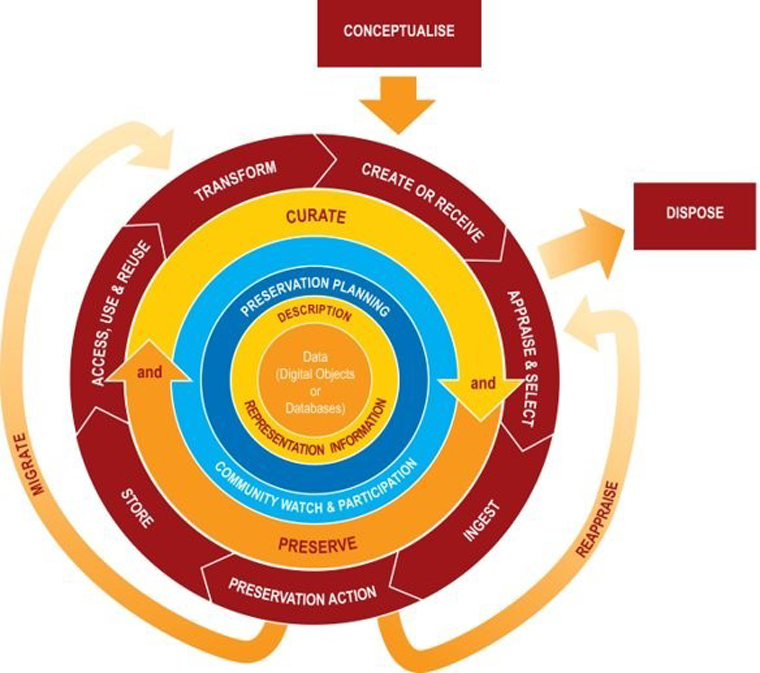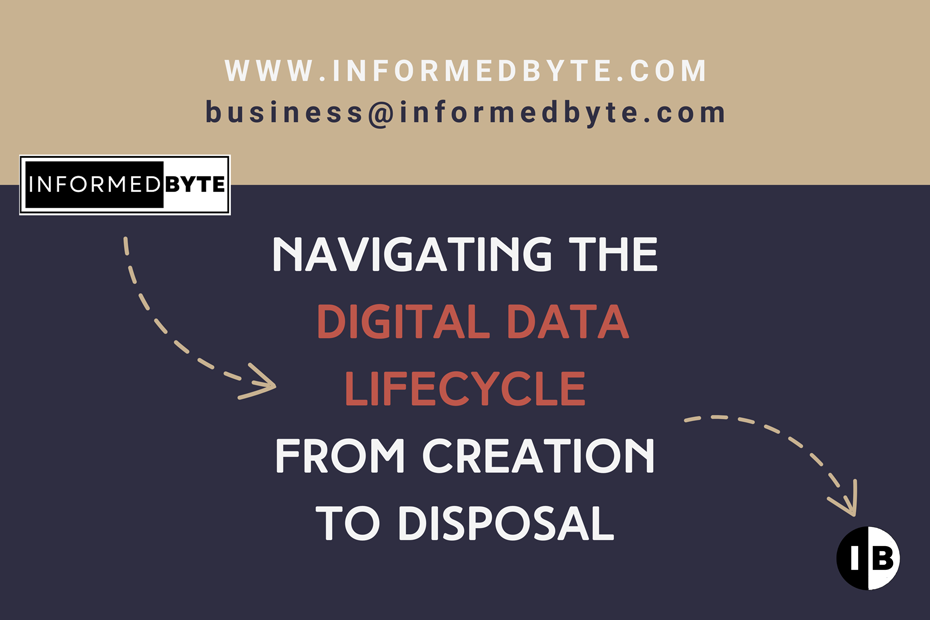Navigating the Digital Data Lifecycle: From Creation to Disposal
May 27, 2025
The management of data throughout its lifecycle is crucial for businesses to maintain efficiency, compliance and organisational information strategy goals. A digital data lifecycle is important because it helps businesses maintain information efficiency, comply with regulations, ensure data integrity, minimise risks, and maximise the value of their data. Without a lifecycle process in place digital information will not be optimal.
In partnership with your business, Informed Byte will consult and design a bespoke scaffold for your business information. We will implement and undertake change management procedures as necessary.

Curation Lifecycle Model | DCC
The above image is an excellent lifecycle example provided by the Digital Curation Centre (DCC). The DCC emphasises the importance of good data management practices, which are essential for ensuring the longevity, integrity, and accessibility of digital data.
As you navigate the digital data lifecycle, it is essential to consider the various stages, from data creation to disposal. Each stage presents unique challenges and opportunities, and effective management practices can help you maximise the value of your data while minimising risks.
Data Creation
The first stage of the digital data lifecycle involves the generation of data. This can occur through various means, such as research, transactions, or user interactions. It is crucial to establish clear guidelines and standards for data creation to ensure consistency and accuracy. This includes defining metadata standards, data formats, and naming conventions.
Data Storage
Once data is created, it must be stored securely and efficiently. This involves selecting appropriate storage solutions that meet your organisation's needs in terms of capacity, performance, and cost. It is also essential to implement robust backup and recovery procedures to protect against data loss.
Data Management
Effective data management practices are critical for maintaining the quality and accessibility of your data. This includes organising data in a way that makes it easy to find and use, implementing data governance policies, and ensuring compliance with relevant regulations.
Data Sharing
Sharing data with stakeholders, collaborators, or the public can enhance the value of your data and promote transparency. However, it is essential to establish clear policies and procedures for data sharing to protect sensitive information and ensure compliance with legal and ethical requirements.
Data Preservation
Preserving digital data for the long term is essential for ensuring its continued accessibility and usability. This involves implementing strategies for data archiving, format migration, and digital preservation.
Data Disposal
The final stage of the digital data lifecycle involves the secure disposal of data that is no longer needed. This includes implementing procedures for data deletion, destruction, and de-identification to protect against unauthorised access and ensure compliance with data protection regulations.
As information management experts and consultants, Informed Byte is dedicated to helping you design and implement effective digital data lifecycle strategies. Our team of experienced professionals brings a wealth of knowledge and expertise in data management, digital libraries, and information technology. We work closely with you to understand your specific needs and develop tailored solutions that support your business objectives. Whether you need assistance with data creation, storage, management, sharing, preservation, or disposal, Informed Byte is here to help you navigate the complexities of the digital data lifecycle and achieve success.
Create a lifecycle appointment
